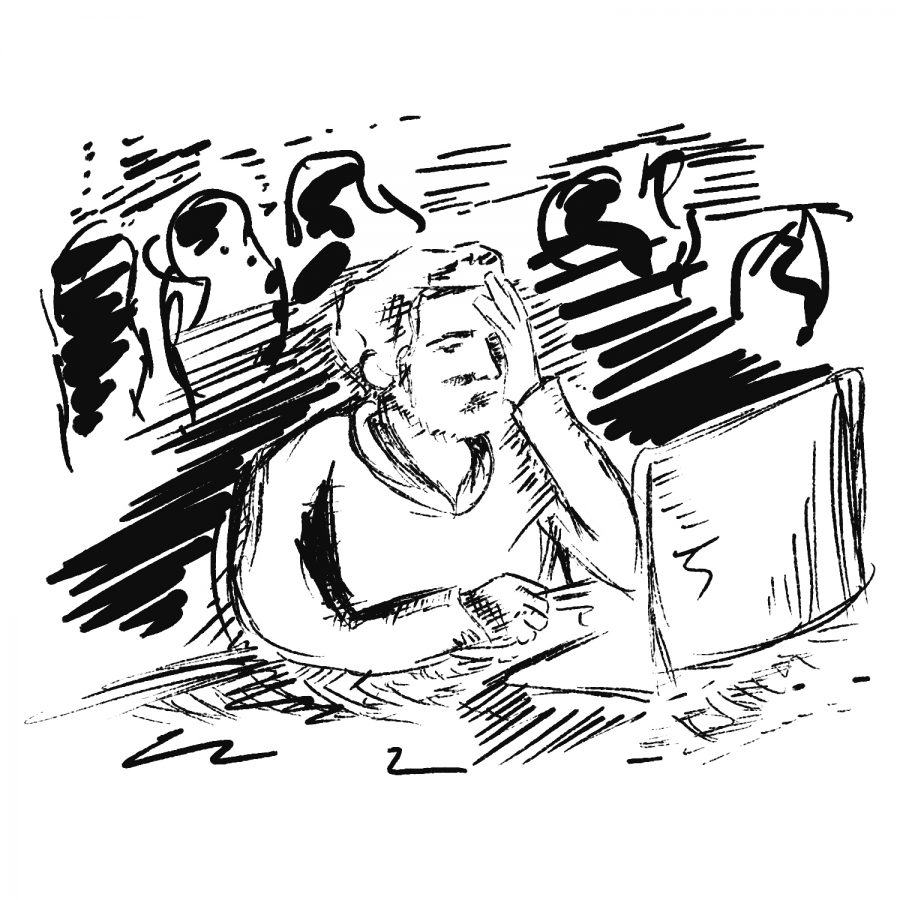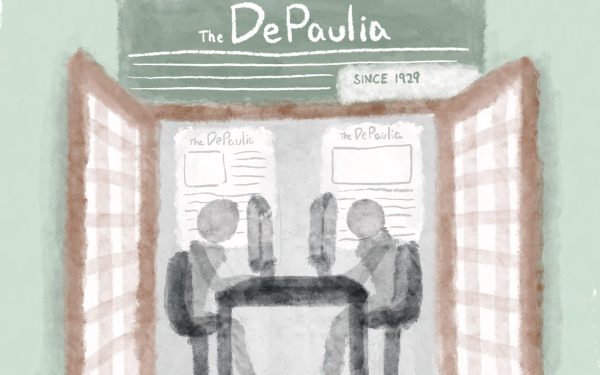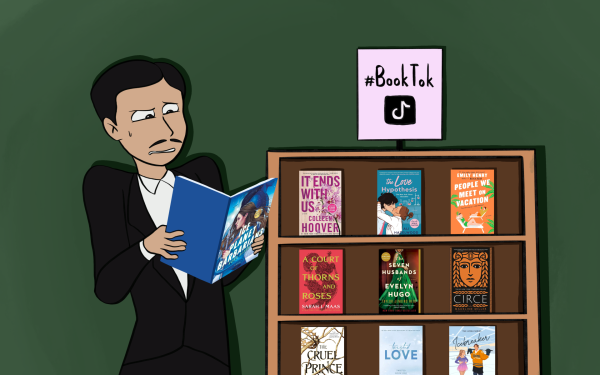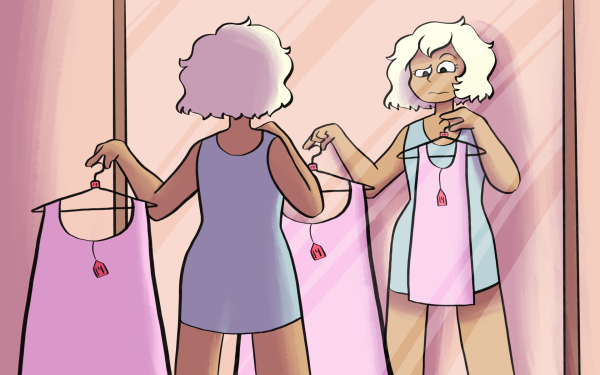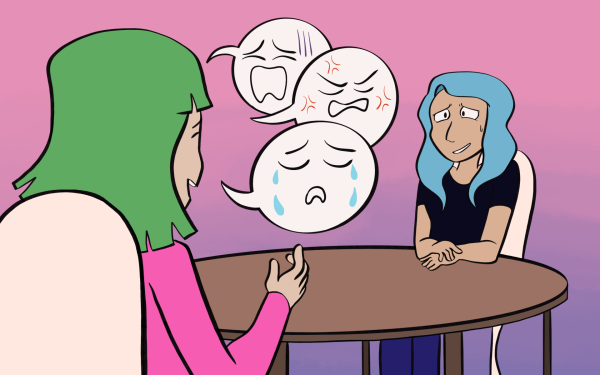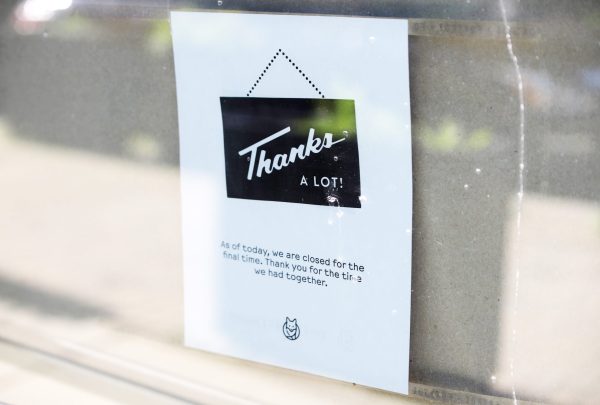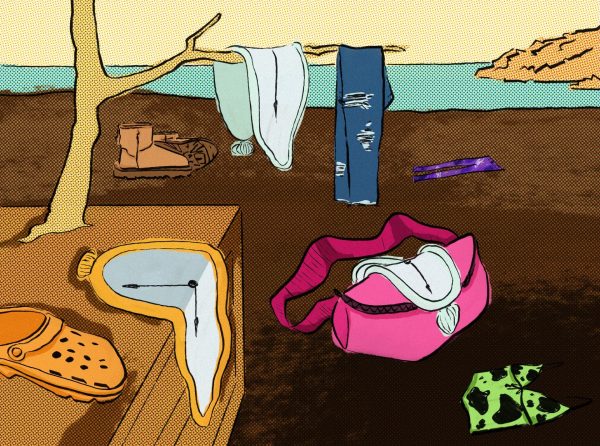COLUMN: The journalism industry needs to reexamine the journalist lifestyle
In what is usually their first journalism class, young reporters are taught early on of the power of communication and the dangers of plagiarism, defamation and libel. Intro to Journalism instructs students on how journalism is a public service to be taken seriously and worth the painstaking time to ensure every detail is right.
Students are then thrown into a world of deadlines, long hours and high pressure. Even on a student journalist level, there’s a constant pressure to work faster, smarter and harder, to take on positions at student media outlets, apply for internships, collect clips and be on-call at all hours — at least if they ever want to be successful in the industry.
In many ways, journalism is my “dream job.” I want to enact change in the world, and I see journalism as a tool to do that. Journalism provides people with fair and impartial information that helps them make decisions about their lives, communities and governments. Being a gatekeeper of that, even on a small level, is something I don’t take lightly. That might be part of the problem.
Many student media outlets take themselves very seriously, and rightfully so; they’re often doing important work to hold their universities accountable and amplify student voices. However, feeling that your work in the newsroom is more important than anything else makes it easy to neglect schoolwork or even basic needs. Dedicating too much time to journalism work means students are far more likely to skip meals or lose touch with friends and family.
In student newsrooms, other staff and students are dependent on each other. Every published piece of work is touched by many people. Recognizing this, students at The Daily Gamecock, the University of South Carolina’s student newspaper, made the decision last October to take a week off from publishing in order to prioritize the mental health of its staff.
Describing a “structureless blur” of breaking news, meetings, quarantines and classes, the paper’s editorial staff said “fighting burnout and practicing self-care ensures that we will be able to continue to serve this community to the best of our ability.”
The Daily Gamecock’s decision highlights how journalism is often an “all or nothing” endeavor with many barriers to entry. While many DePaul-specific student media opportunities are paid (more or less), students who need to work other jobs or aren’t available at odd hours may find it difficult to get involved.
Besides the opportunity cost, high demands in journalism have other tangible repercussions. One study, published by Insider, shows how journalists are more likely to consume more alcohol, caffeine and high-sugar foods and less water than the average person. Sure, these might be typical food groups of the average college student. But do we want to set students up for a career that de-emphasizes self care, inadvertently pushing young journalists toward unhealthy coping mechanisms?
Moreover, the 24-hour news cycle can lead to cutting corners. According to a study by Stanford economics professor John Pencavel, productivity declines sharply when working more than 50 hours per week. Between journalism and a full course load, this threshold is easily passed by many student journalists.
Between my own job at Radio DePaul, position at The DePaulia, current 18-credit workload and the weekend hours I log as an ice skating coach, I often feel stretched beyond my ability. It’s hard for me to feel like I’m doing my best work, and it’s often when I’m pushing myself the hardest that I feel myself falling back and making mistakes, forgetting deadlines or flaking on plans.
For construction workers, overtime can result in safety mishaps and structural mistakes; for nurses and doctors it can result in misdiagnosis; for lab workers, it could result in cross-contamination. For journalists, overtime can lead to poor reporting and small mistakes that wreck careers and ruin reputations, and yet, in an impossible Catch-22, the job demands it.
It’s time we stop holding the journalism industry to an impossible standard and take a serious look at working conditions. Rather than priming students for a career in a quickly declining print industry, schools should be critically examining the use of communication and journalism, and how we can push forward for equity and fairness — in more than just the articles we produce.
Journalism has a labor problem. Undoing the idea that this is a “dream job” is one step we can take to fix it. For student journalists to produce their best work, they have to put their mental and physical well-being first. As students, we’re building the foundations of our careers, making it even more important that we establish a healthy relationship with journalism early on.
As other labor issues come to light in other industries, it’s time to turn an eye to the very industry that supposedly holds the others accountable. If journalism can’t ethically employ workers, how can it truly hold other industries accountable?


